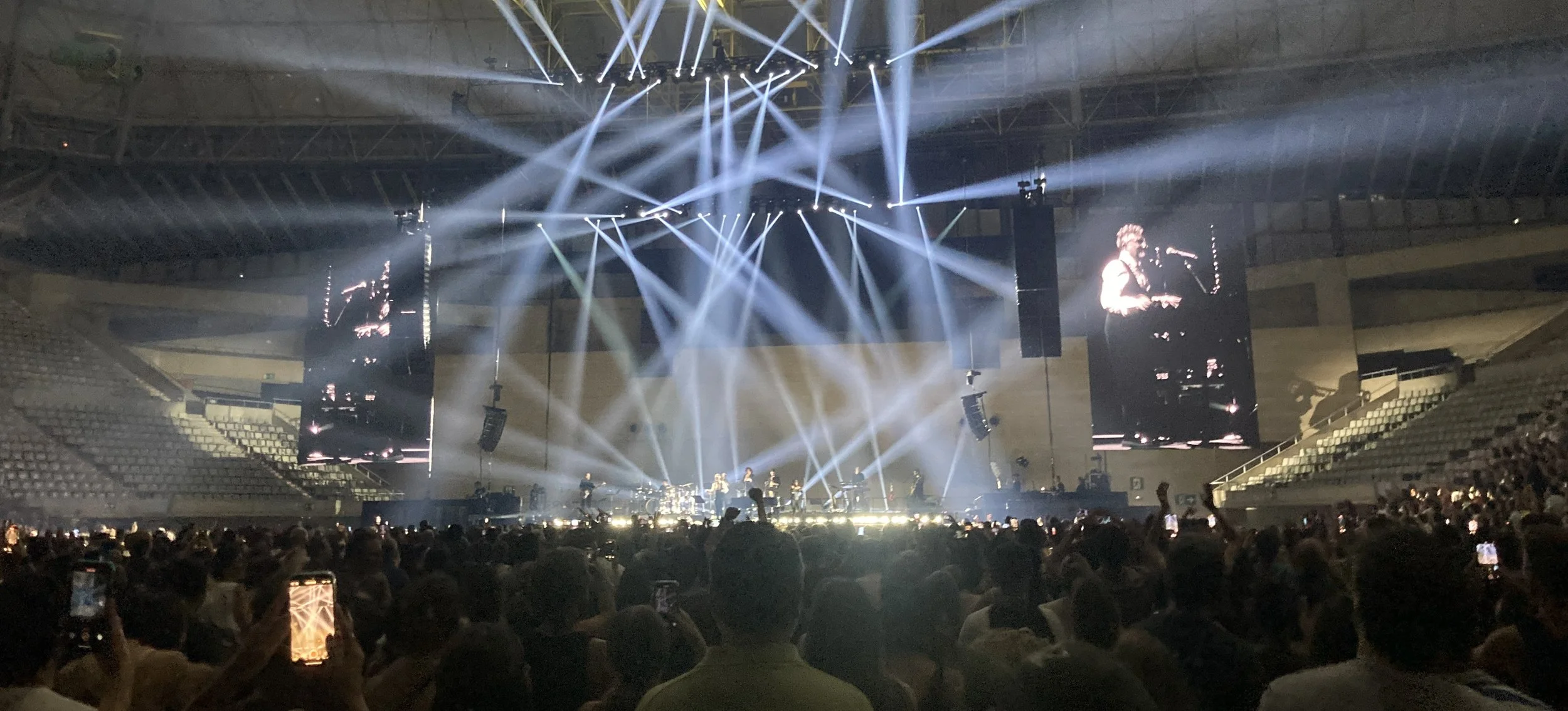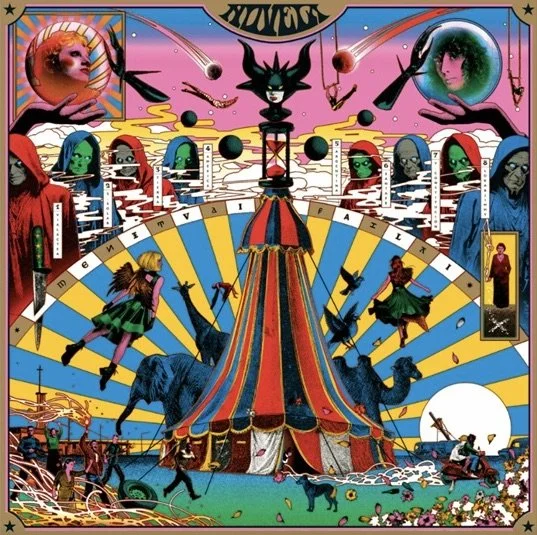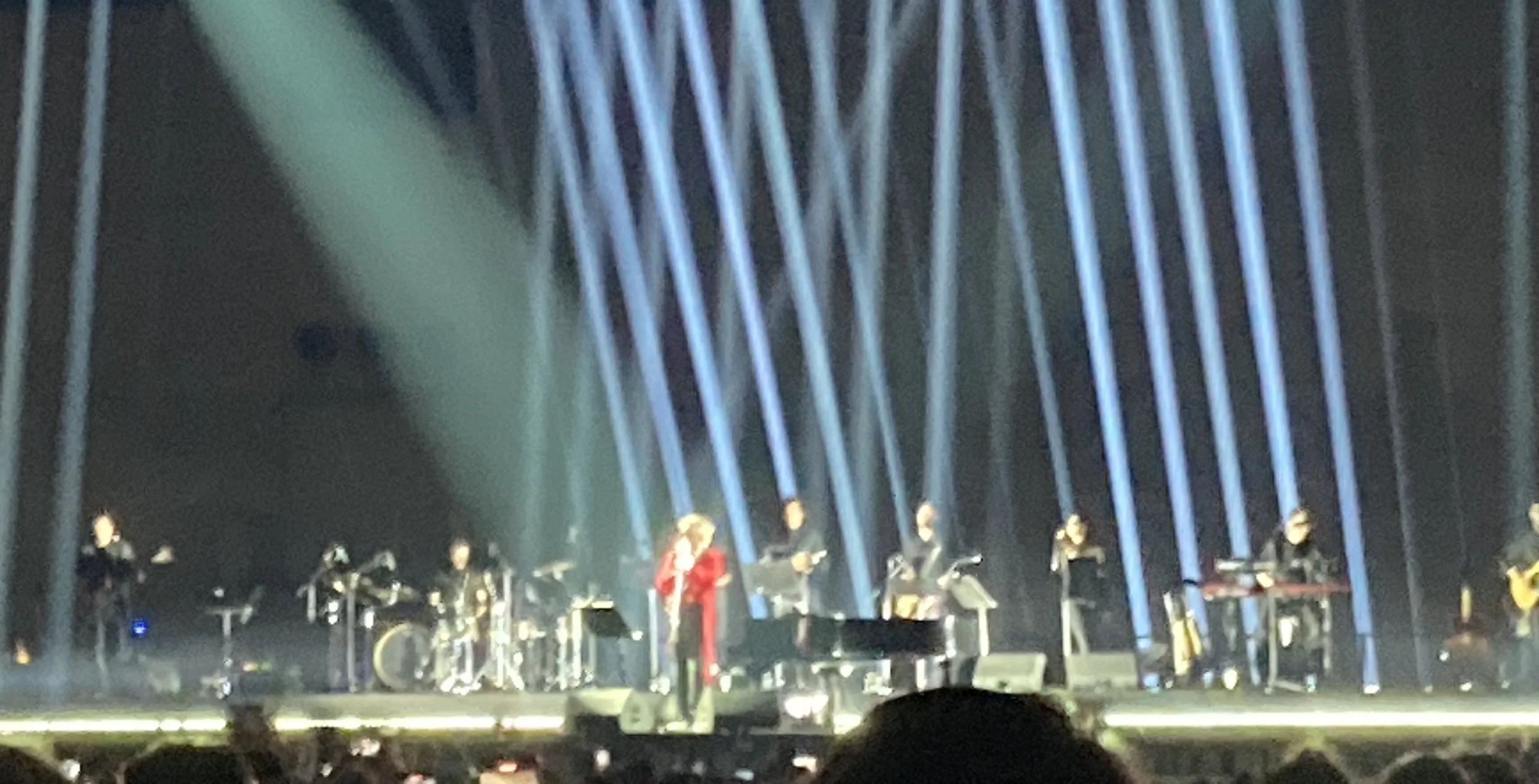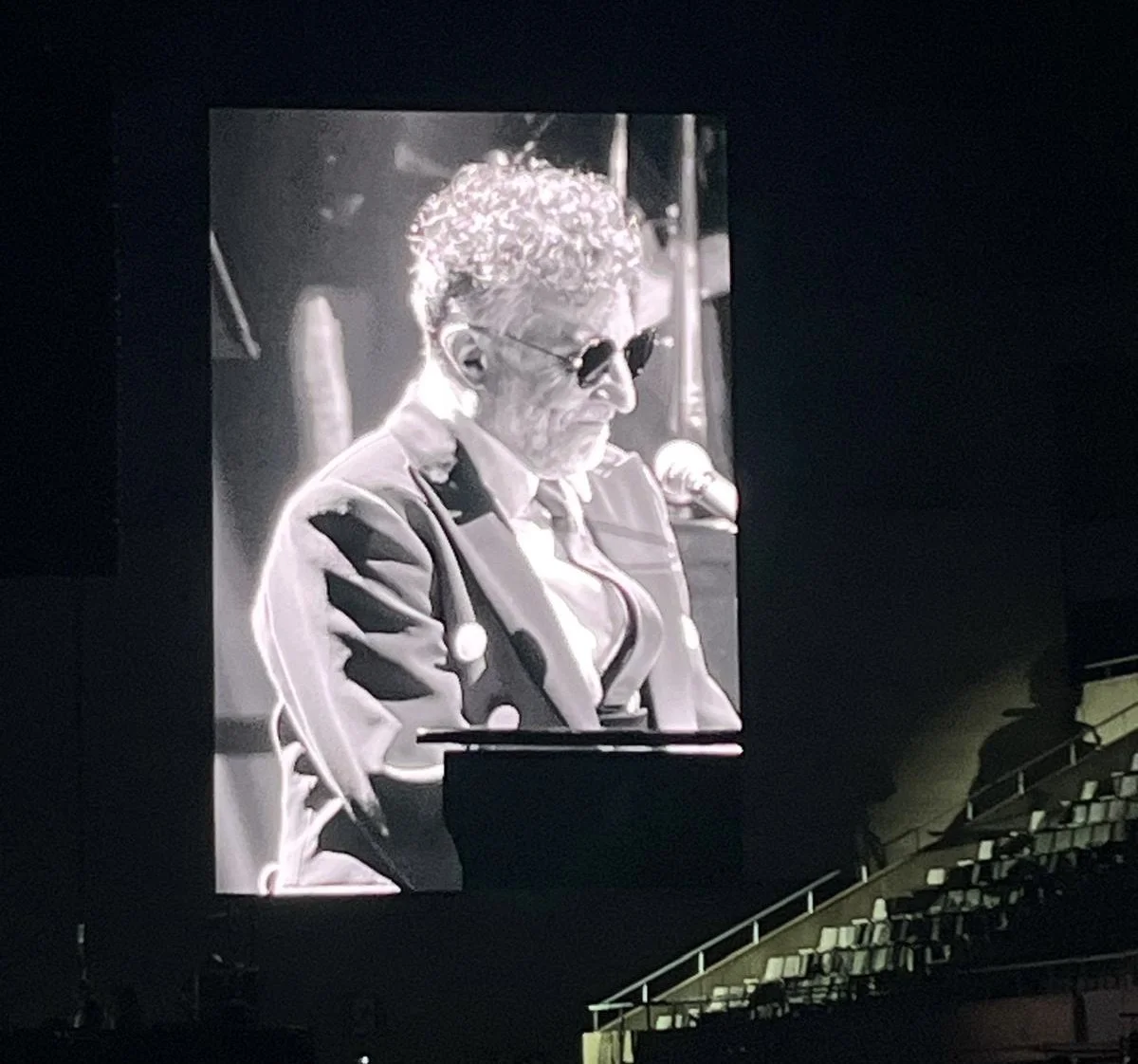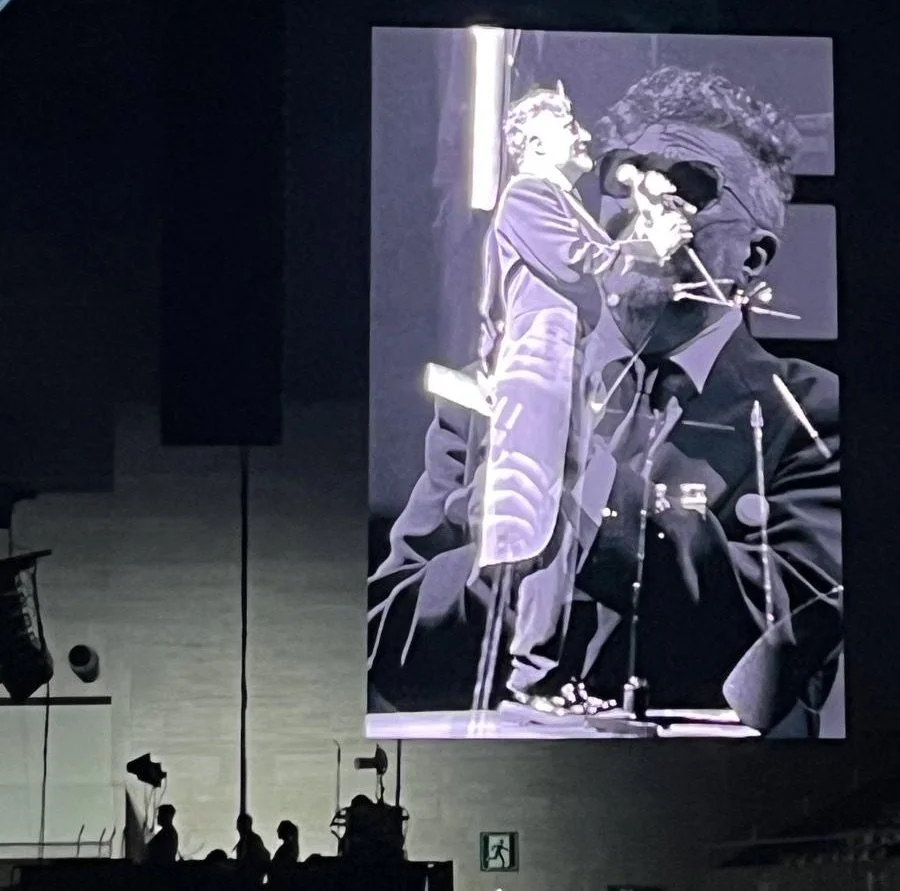Fito Páez in Barcelona!
Rodolfo “Fito” Páez, el trovador del rock argentino, is an undisputed legend of Argentinian Rock Nacional. Ever since 1981, when he first emerged on the scene as a member of fellow Rosarino Juan Carlos Baglietto’s band, he’s been flooring audiences with his impassioned vocals, charismatic keyboard playing, cryptic lyrics, and singular melodic approach. His 1992 album El Amor Después del Amor is still the top selling Argentinian album of all time, and although there may be a couple of artists who are even more universally beloved than he is, it’s hard to think of a figure from the English speaking world with comparable status and multi-generational affection to what he enjoys in his native country. They even made a Netflix series about him a couple years ago, and I highly recommend it! It may not be 100% historically accurate all the time, but the acting and musical performances are mind-blowing and it’s almost guaranteed to make you cry.
On the fifth of July, 2025, he performed at the Palau Sant Jordi Basketball arena in Barcelona as part of his Páez Teknicolor tour, and the lovely M and I were there, along with a significant percentage of Catalonia’s Argentinian population. Fito is one of our favorite Argentinian rockers, second only to the great Charly Garcia, who helped to introduce him to the world as part of his legendary touring band in the mid 80s, and who, sadly, hasn’t played a real public concert since a surprise appearance at his 70th birthday celebration in 2021. As such, this was a major event for us, one which we had been eagerly anticipating for months, trading songs and rampantly speculating about what he might play, our only clue being a note he posted on Instagram a couple of months before, promising a combination of classic hits and songs from his ambitious new concept album, Novela, which has apparently been in the works since 1988.
The indisputably awesome album cover for Novela
It was my first time in Barcelona, and we only had one full day to be there together, so we spent the day of the concert walking all around town, visiting architectural highlights from eccentric local hero Antoni Gaudi, nearly being flattened by a red-light-flaunting taxi driver, and roasting in the 35° heat, all the while talking about what we thought we could expect from the show. We had both been listening to Novela, and while we both agreed that it lacked the magic of his early albums (Del ’63, Giros, and El Amor Después del Amor are our favorites), it definitely demonstrates that he can still bring it when it comes to singing and playing the piano.
That boded well, and we were both feeling cautiously optimistic, if also a bit punch drunk from the heat, when we arrived at the venue. We had a few issues at the door when a security guard noticed the bluetooth speaker that I had absentmindedly left in my backpack. I suppose they thought I wanted to use it to record the show, and for a moment I was worried that they weren’t going to let me in, but in the end I was able to leave my bag at the coat check, and by the time they dimmed the lights we were at our seats, luxuriating in the air conditioning and enjoying two very expensive but also very large beers.
Then it was time. First his very large band took the stage, complete with strings, horns, two guitarists, an auxiliary keyboard player, and a backup vocalist in aggressive lingerie, possibly Mariela “Emme” Vitale, who sings back-up on Novela. Then Fito came out in the red cutaway jacket of a ringmaster (the circus has been one of his major themes since the 90s) and proceeded to start the show with a medley of “Amor es Dinero” and “Buenos Aires 20/30”, two songs from his 2022 orchestral, and mostly instrumental, tribute to Argentinian author Roberto Arlt, Futurología Arlt. This was an unexpectedly obscure place for him to start the show. The one clear expectation that we had come in with was that he would focus on his material with the strongest international reputation, but this seemed to be about as specifically Argentinian, and as geared towards hardcore fans, as his catalogue gets.
He followed up with “El Mundo Cabe en una Canción”, an autobiographical tune with an epic intro worthy of its title. This 2006 song contains a reference to a performance by Charly Garcia’s progressive rock band La Maquina de Hacer Pájaros in Rosario on August 7, 1976, Fito’s first concert, which he has cited as one of the key formative experiences in his musical life. It also has more of a classic Fito vibe, and you could see that the audience, after being a bit shocked by the opener, was starting to get on board.
Next, he played “Salir al Sol,” a 2008 rocker not to be confused with “Sale el Sol,” a song from Novela, which he performed live for the first time ever later in the show. All of this had been pretty awesome, and the excitement of the audience was getting palpable, but I have to admit that the fact that he hadn’t played anything from the 80s or 90s yet was starting to worry me a bit. Maybe Fito’s definition of “classic hits” wasn’t quite the same as ours?
So, imagine my relief when he finally pulled out a song that I actually knew well, one of my favorites in fact, “Dos días en la vida”, the second song on El Amor Después del Amor, which more or less straightforwardly tells the story of the movie Thelma and Louise. In announcing the song, he cautioned the audience that it would be a completely different version, but still really cool. It was, indeed, a pretty good, if a bit slowed and stripped down, version, but it made me feel bad for Fito’s Lingerie-clad back-up singer. On the album, Celeste Carballo and Fabiana Cantilo deliver what may be the most impressive piece of virtuosic back-up vocals I’ve ever heard, but in this version there was almost nothing for her to do. Who knows, maybe she was relieved, but it does seem like a bit of a missed opportunity.
This is already starting to go a bit long, so I won’t go through everything he played in his two substantial sets and two encores, however tempted I may be. Ultimately, my fears proved unfounded, and he ended up bringing out a satisfying array of his classics. Most notably, this included a well-chosen 8 out of the 14 songs on El Amor Después del Amor. His darker and heavier version of “Tráfico por Katmandú” was particularly striking, maybe my favorite moment in the show, although the wave of excitement that ran through the audience when he started to play the album’s title track was also something that I won’t soon forget.
Other highlights included his 90s hits “Mariposa tecknicolor,” from his followup to El Amor…, Circo Beat, and “Llueve sobre mojado,” the humorous product of a short-lived collaboration between Fito and legendary Spanish musician and poet Joaquín Sabina, as well as first-ever live performances of four songs from Novela. I was particularly happy to hear two of the best songs from my personal favorite of Fito’s albums, 1985’s Giros, the sweetly romantic “11 y 6” and “Cable a Tierra,” a mournfully wistful meditation on being in love with someone with a drug problem.
And then he ended with one final surprise. After an encore of two of his most up-beat songs, the previously mentioned “Mariposa tecknicolor” and “Sale el Sol,” he briefly left the stage and then returned to close with an extremely intense performance of “Ciudad de pobres corazones,” the darkest song from his darkest album, in which he explicitly discusses the circumstances surrounding the brutal and tragic murder of some of the most important people in his life by a former acquaintance. It was, it must be said, a spectacular performance, and it’s a fantastic song, but it was such a bleak note on which to end what had seemed, up to that point, to be a celebratory occasion. I don’t think M and I were alone in hoping that Fito was doing OK as we left the arena.
Despite that, all in all, it was just a joyful experience to be in the presence of Fito, in all his power and vulnerability, along with so many people who love him and his work as much as we do. He seemed to be as happy to be there as we were, and he absolutely showed that he still has what it takes to be a great live performer at 62. Sadly, he didn’t play either of my two favorites from his catalogue, the title track from Giros or “Tres Agujas,” the main head-turner from his first album, Del ’63, but I guess that will give me something to come back for.
Unless you live in a Spanish-speaking country (or maybe Brazil), it’s pretty unlikely that Fito will be coming to your town any time soon, but I can’t recommend getting to know him and his work highly enough (a more in-depth portrait is coming to the website soon). Start getting to know him now, and when it’s time for his next tour, you might just be willing to make the trip.
-Peter Lawson
July 2025
